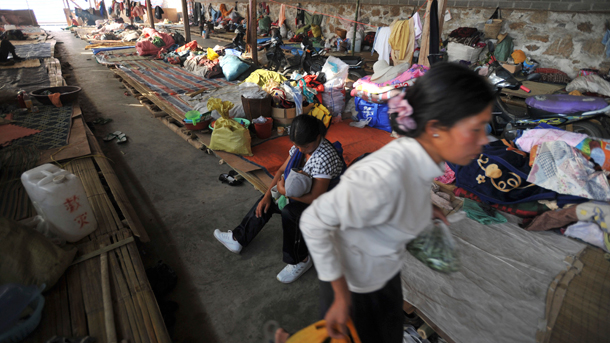More than 80 cases of torture and abuse have taken place in Burmese prisons since the November 2010 general elections, according to a damning new report.
The Network for Human Rights Documentation-Burma (ND-Burma) documented 371 incidences of human rights violation across the country since President Thein Sein’s quasi-civilian government assumed office, of which 83 cases, or 22 percent, constitute torture and ill treatment.
“Despite being bound by international human rights treaties and norms, Burma has no domestic legislation or independent judiciary, and an ineffective human rights commission that cannot address such violations,” claims the ND-Burma.
“Torture and ill treatment are committed with impunity—a climate that poses a significant hurdle for Burma’s democratic transition.”
Extreme Measures: Torture and Ill-Treatment in Burma since the 2010 Elections concentrates on where political prisoners are interrogated and held—especially ethnic minority areas where government troops are actively engaged in armed conflict.
“In ethnic nationality areas torture seldom takes place in formal detention centers but is meted out in military bases or remote rural villages,” said the ND-Burma. “Shan State and Kachin State are particularly hard hit.
“Evidence gathered by ND-Burma shows that torture and ill-treatment in ethnic areas often takes place within the context of other human rights violations, including arbitrary arrest, forced labor, forced portering, confiscation of property, restriction of movement and sexual violence.”
Burma’s 2008 Constitution is also criticized by the network for stipulating that civilian courts do not have jurisdiction for crimes committed by the military. Instead, these fall under a military court system whose final authority is the Commander-in-Chief of Defense Services.
The report makes a number of recommendations to the Burmese government and international community. Chief among these are calls for the adoption of legislation guaranteeing basic rights for all the people of Burma, particularly the internationally recognized right to be free from torture and ill-treatment, and laws that ensure that the perpetrators of these crimes face justice.
In addition, there are demands for more education, training and public awareness about torture in order to prevent future violations as well as calls to institute safeguards and programs that guarantee that victims have available, credible, accessible remedies to deal with torture should it take place.
The ND-Burma also raises concerns regarding the new National Human Rights Commission, including its lack of full independence, its inability to investigate crimes committed by the military, and its failure to comply fully with best practices for national commissions as described in the Paris Principles. The commission also does not investigate allegations from conflict zones.
The Chiang Mai-based ND-Burma was formed in 2004 and consists of 13 human rights organizations working on a range issues in diverse areas across Burma—including conflict and non-conflict areas.

















